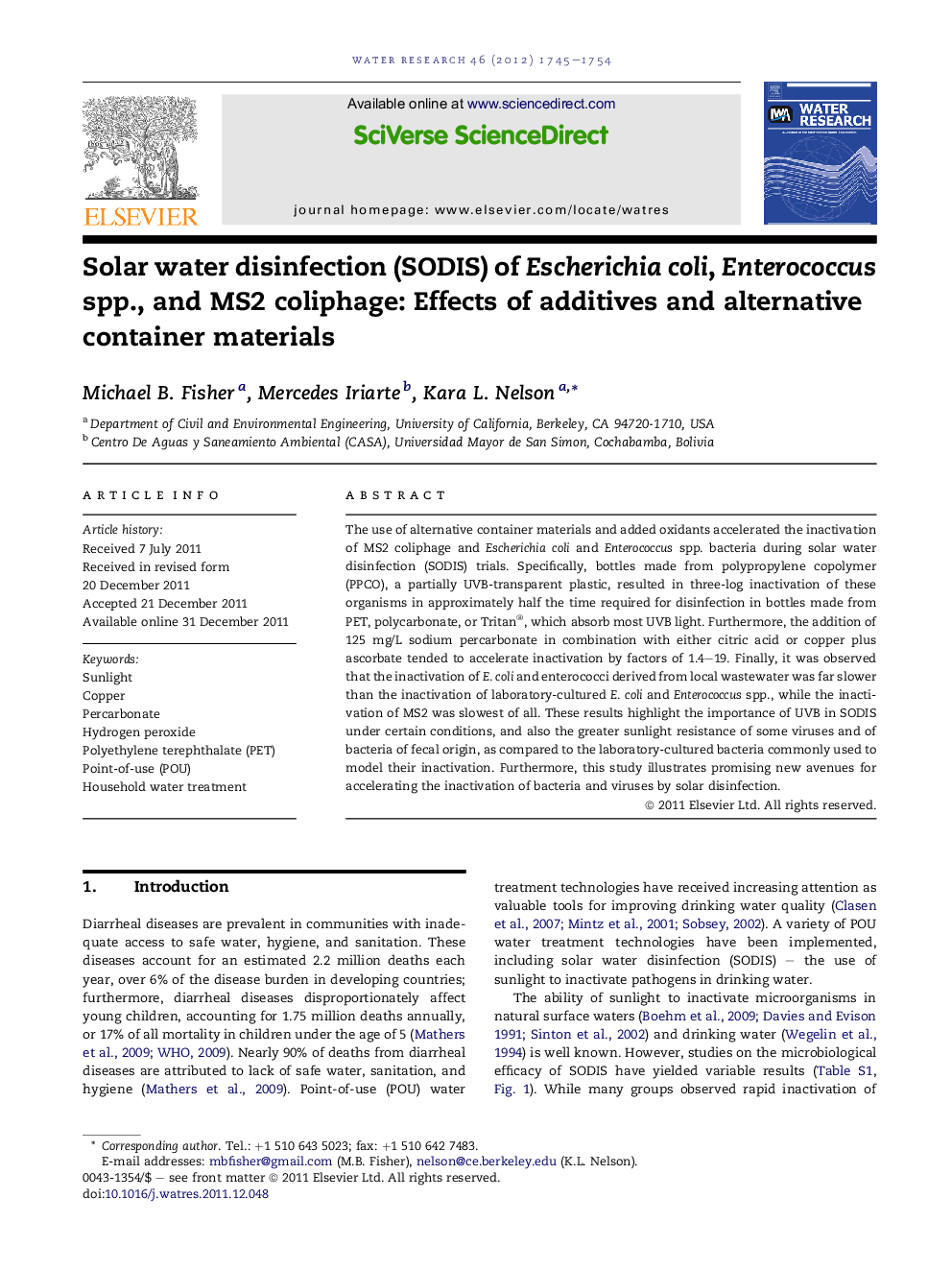| کد مقاله | کد نشریه | سال انتشار | مقاله انگلیسی | نسخه تمام متن |
|---|---|---|---|---|
| 4483473 | 1316889 | 2012 | 10 صفحه PDF | دانلود رایگان |

The use of alternative container materials and added oxidants accelerated the inactivation of MS2 coliphage and Escherichia coli and Enterococcus spp. bacteria during solar water disinfection (SODIS) trials. Specifically, bottles made from polypropylene copolymer (PPCO), a partially UVB-transparent plastic, resulted in three-log inactivation of these organisms in approximately half the time required for disinfection in bottles made from PET, polycarbonate, or Tritan®, which absorb most UVB light. Furthermore, the addition of 125 mg/L sodium percarbonate in combination with either citric acid or copper plus ascorbate tended to accelerate inactivation by factors of 1.4–19. Finally, it was observed that the inactivation of E. coli and enterococci derived from local wastewater was far slower than the inactivation of laboratory-cultured E. coli and Enterococcus spp., while the inactivation of MS2 was slowest of all. These results highlight the importance of UVB in SODIS under certain conditions, and also the greater sunlight resistance of some viruses and of bacteria of fecal origin, as compared to the laboratory-cultured bacteria commonly used to model their inactivation. Furthermore, this study illustrates promising new avenues for accelerating the inactivation of bacteria and viruses by solar disinfection.
Figure optionsDownload high-quality image (215 K)Download as PowerPoint slideHighlights
► Low-cost additives accelerated solar water disinfection (SODIS).
► UVB-transparent containers accelerated SODIS.
► Wastewater-derived bacteria were more resistant to SODIS than laboratory strains.
► MS2 coliphage was highly resistant to SODIS, particularly in PET bottles.
Journal: Water Research - Volume 46, Issue 6, 15 April 2012, Pages 1745–1754